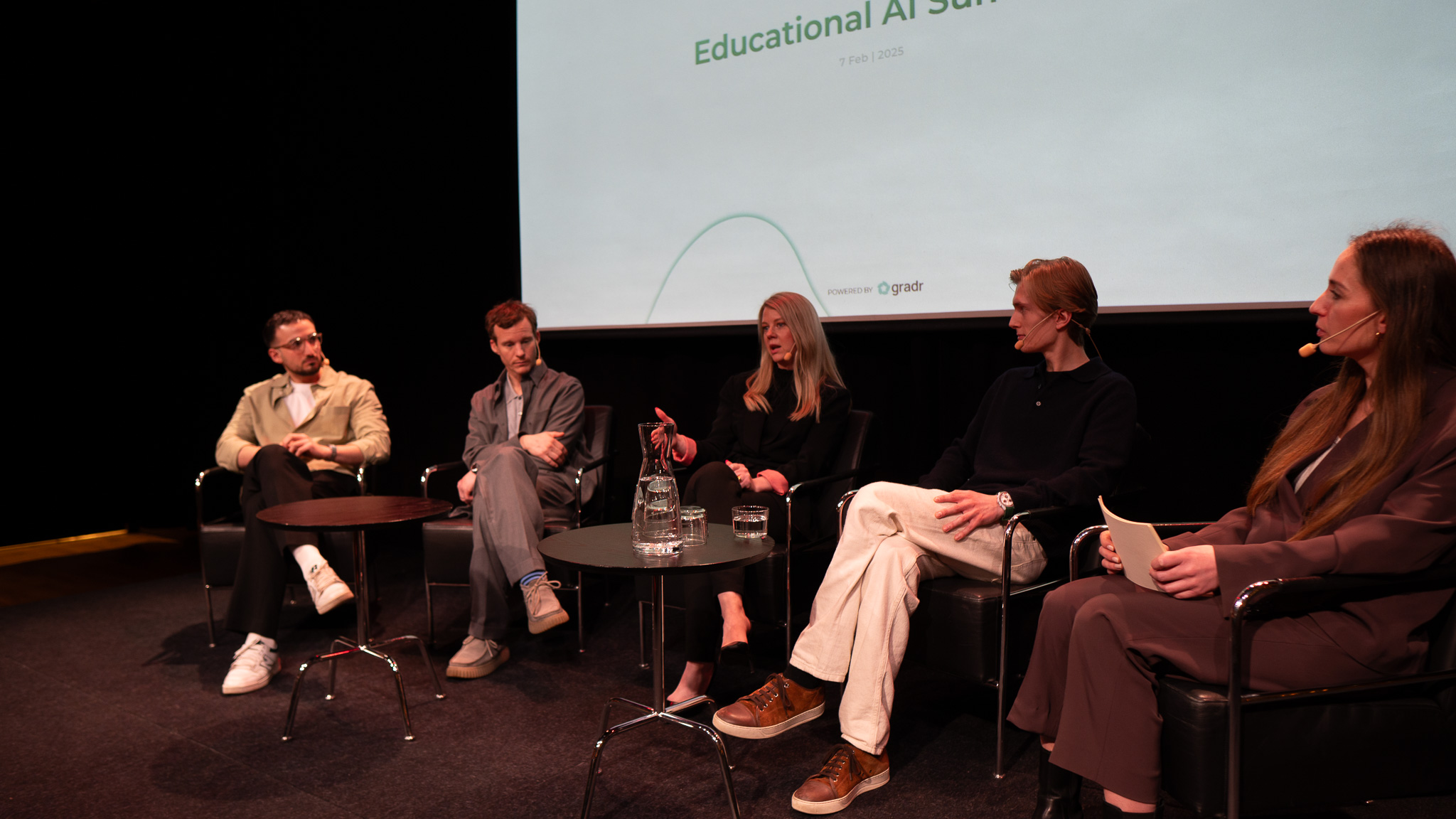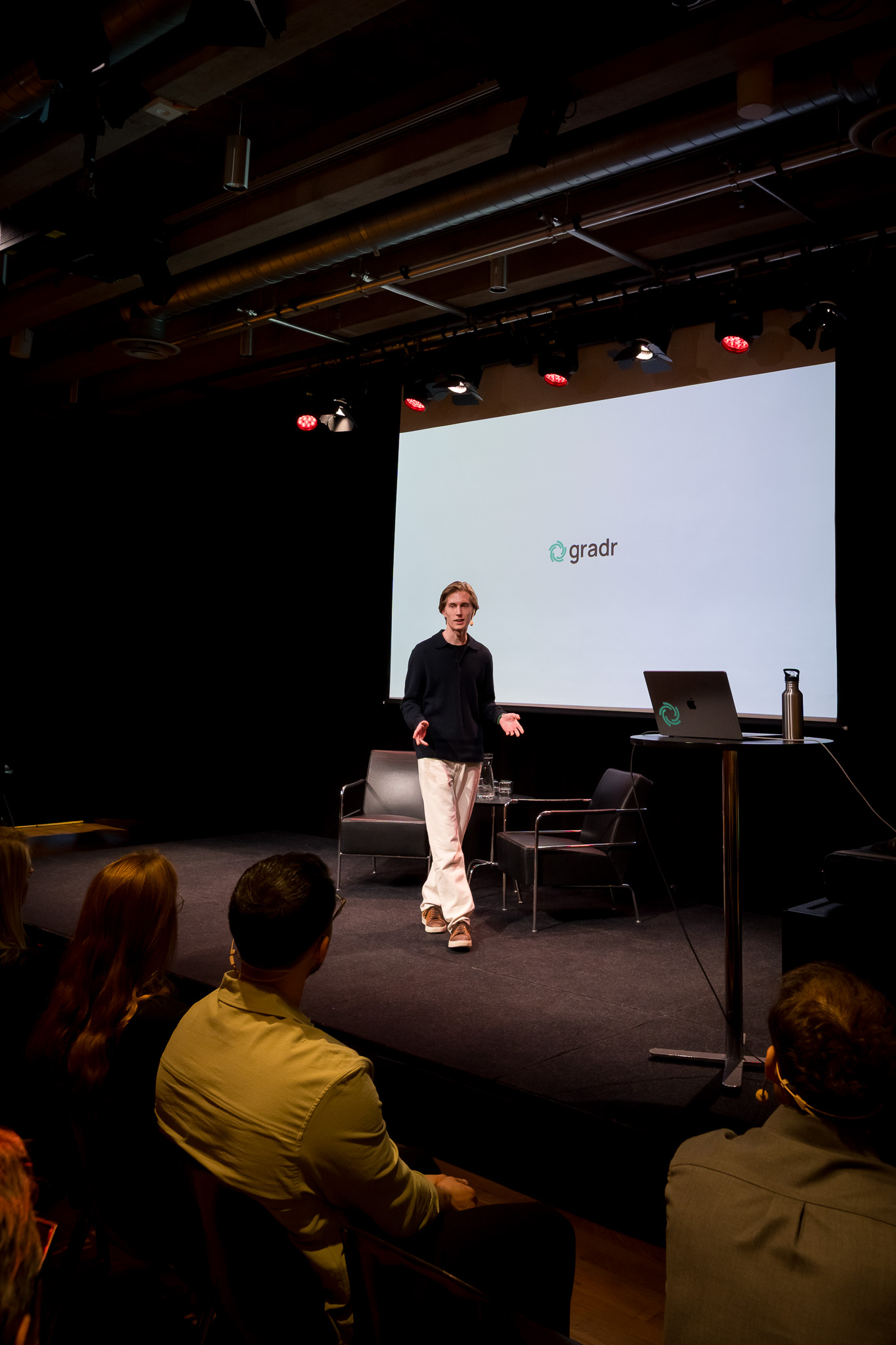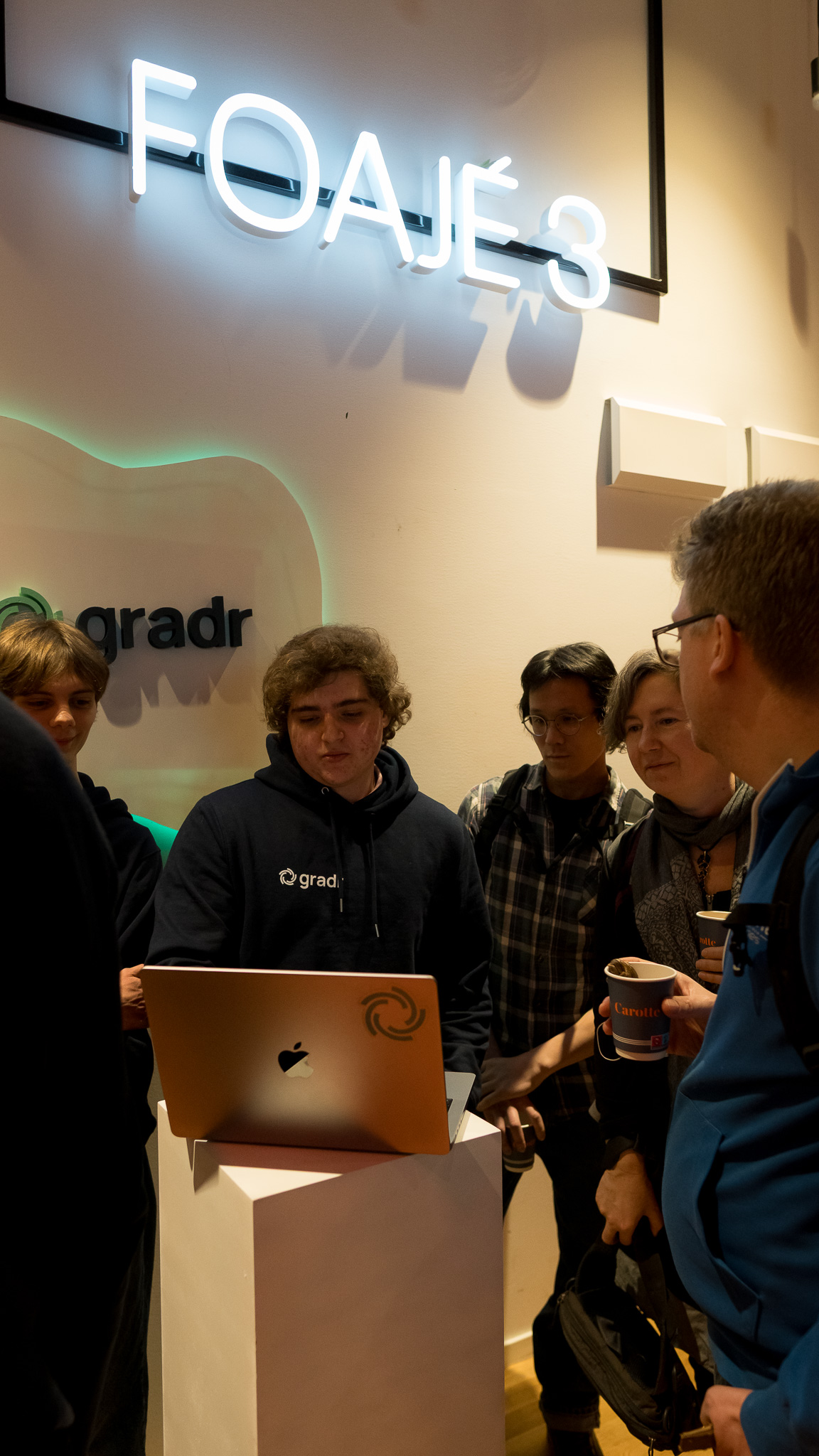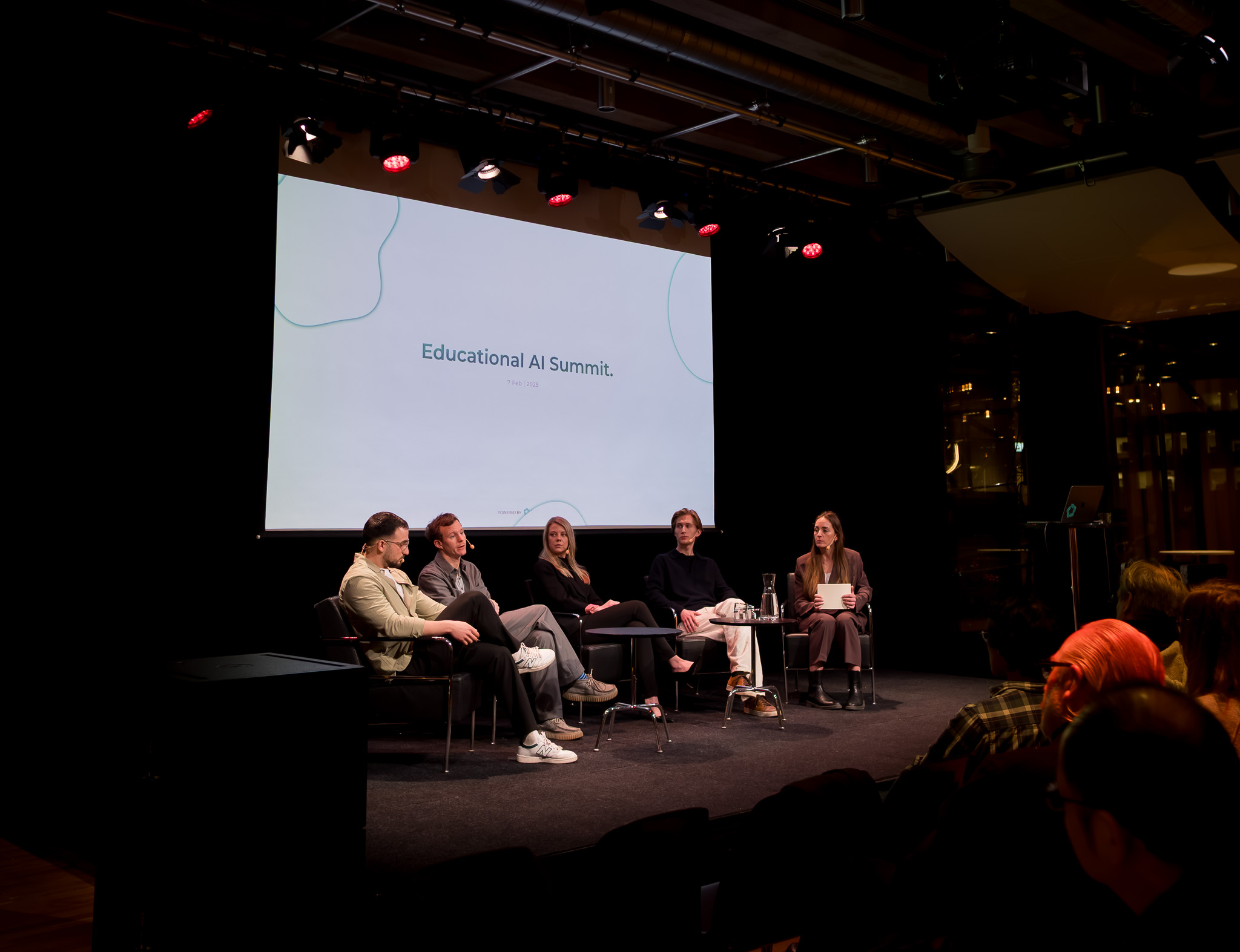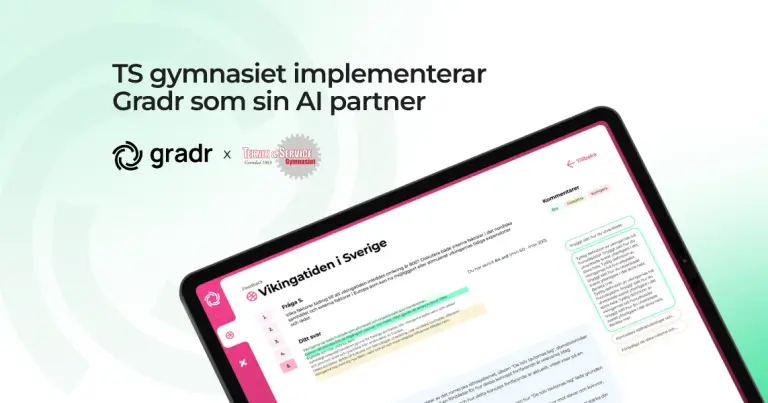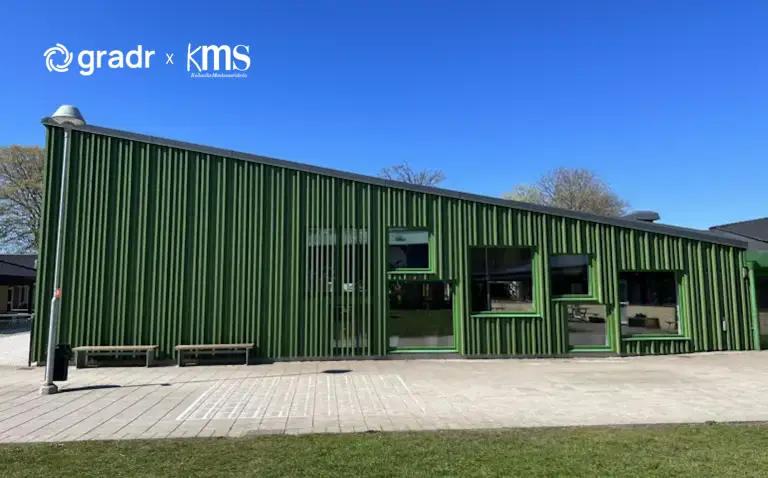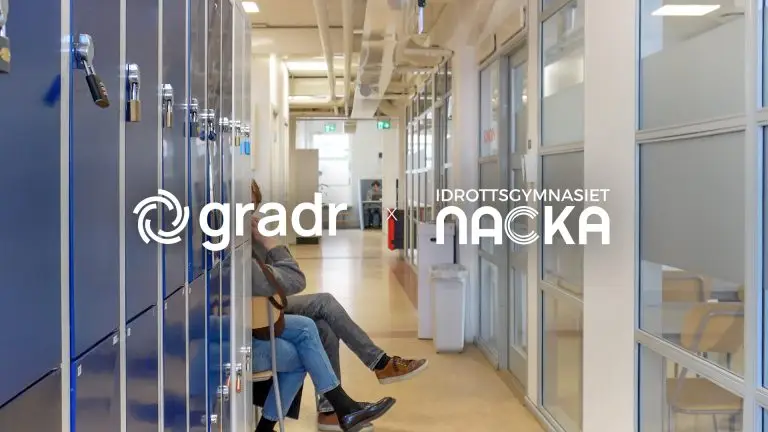During our development we have talked to countless private and public schools, and we’ve noticed a strong interest in AI coupled with a significant knowledge gap. Many schools realize they’re already lagging behind and aren’t sure how to tackle this challenge or best integrate AI into their operations.
To address these concerns, Gradr hosted Sweden’s first Educational AI Summit on the theme “Möjligheter och utmaningar med AI inom Utbildning” (“Opportunities and Challenges with AI in Education”). Leading authors and researchers in educational AI—Johan Falk, Joel Rangsjö, and Nima Saerzadeh—joined us to share their insights. Their message was clear: Sweden must act fast.
Historically, the Swedish school system has been slow to implement new strategic initiatives—“digitala nationella prov” (digital national exams), for instance, still haven’t rolled out seven years after initialized. However, each speaker stressed that although not all AI is beneficial and it certainly isn’t a fix-all solution, the technology holds immense potential if used responsibly and rolled out swiftly.
"Schools shouldn't fear AI simply because it's deemed high risk"
We also gained valuable legal perspectives from Hanna Öhman, who spoke about the AI Act and its implications for both schools and EdTech providers. A key takeaway was that schools shouldn’t fear AI simply because it’s deemed “high-risk.” This classification enforces stricter criteria on EdTech companies—effectively serving as a quality stamp rather than a warning label.
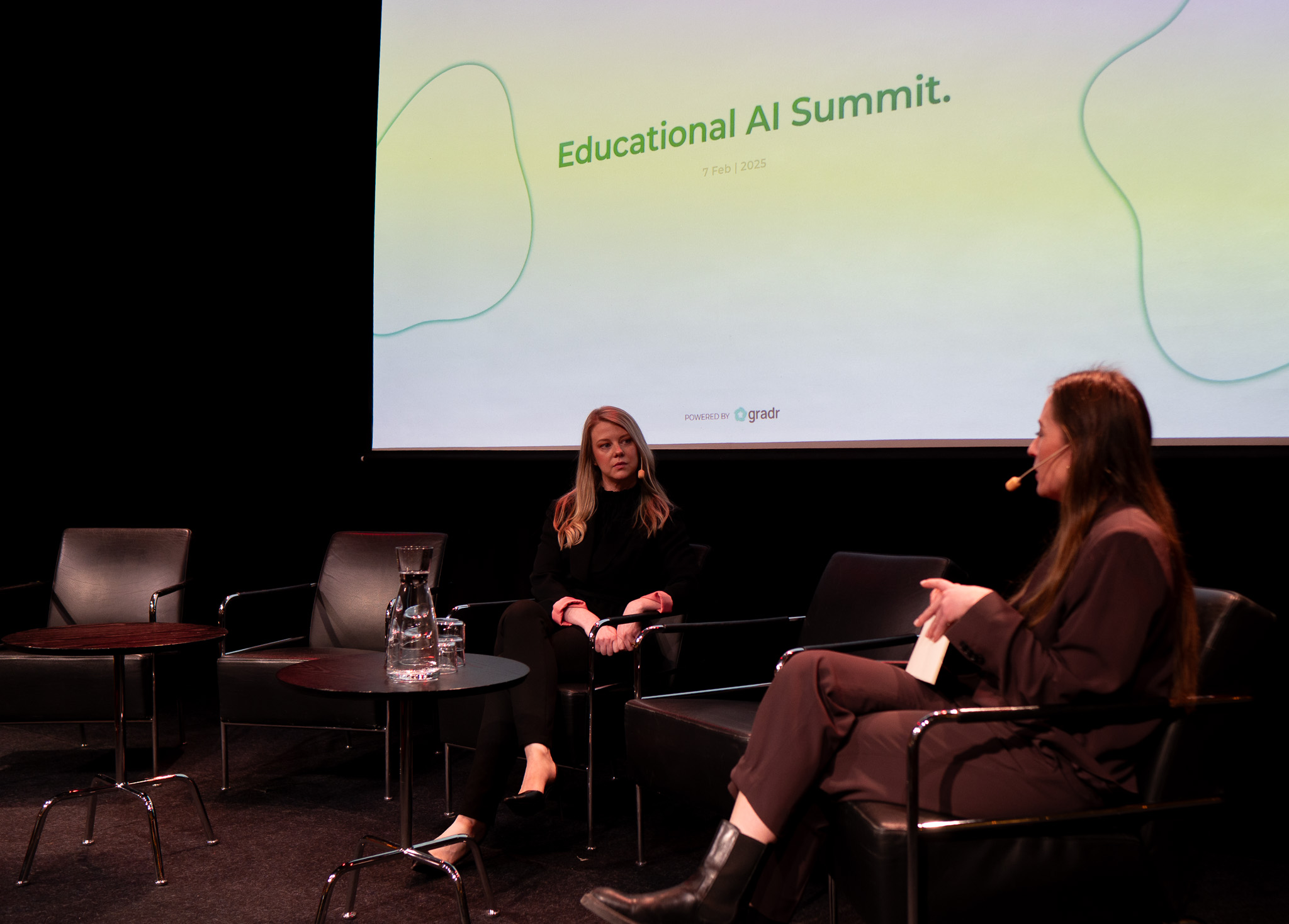
To wrap up the first part of the event, we showcased our very first live demo, highlighting some of our work from recent months. Soon, we’ll be launching Gradr 1.0, further positioning Sweden as a global leader in Educational AI. Exciting times lie ahead—stay tuned! We hope everyone left with fresh ideas and a generous dose of inspiration.
Thank you to everyone who joined us at the summit!
